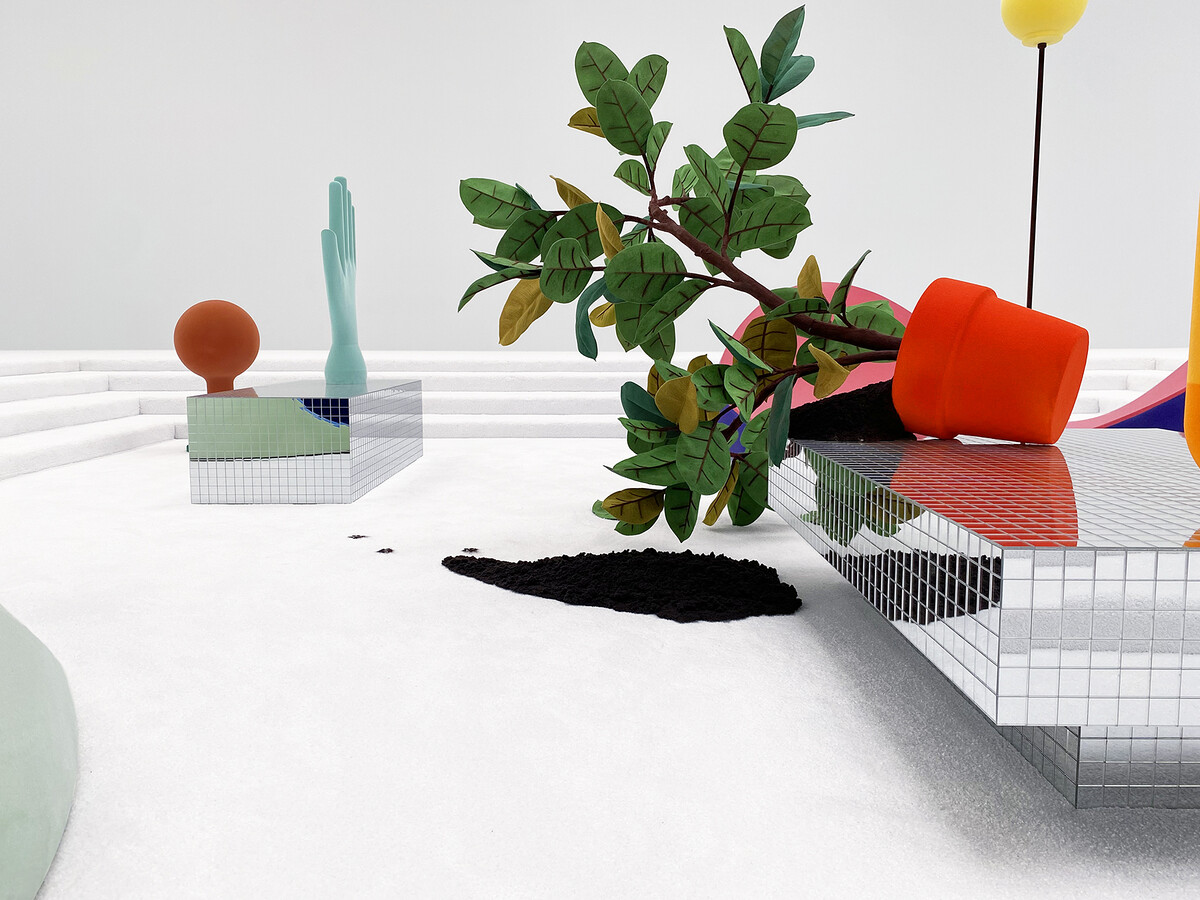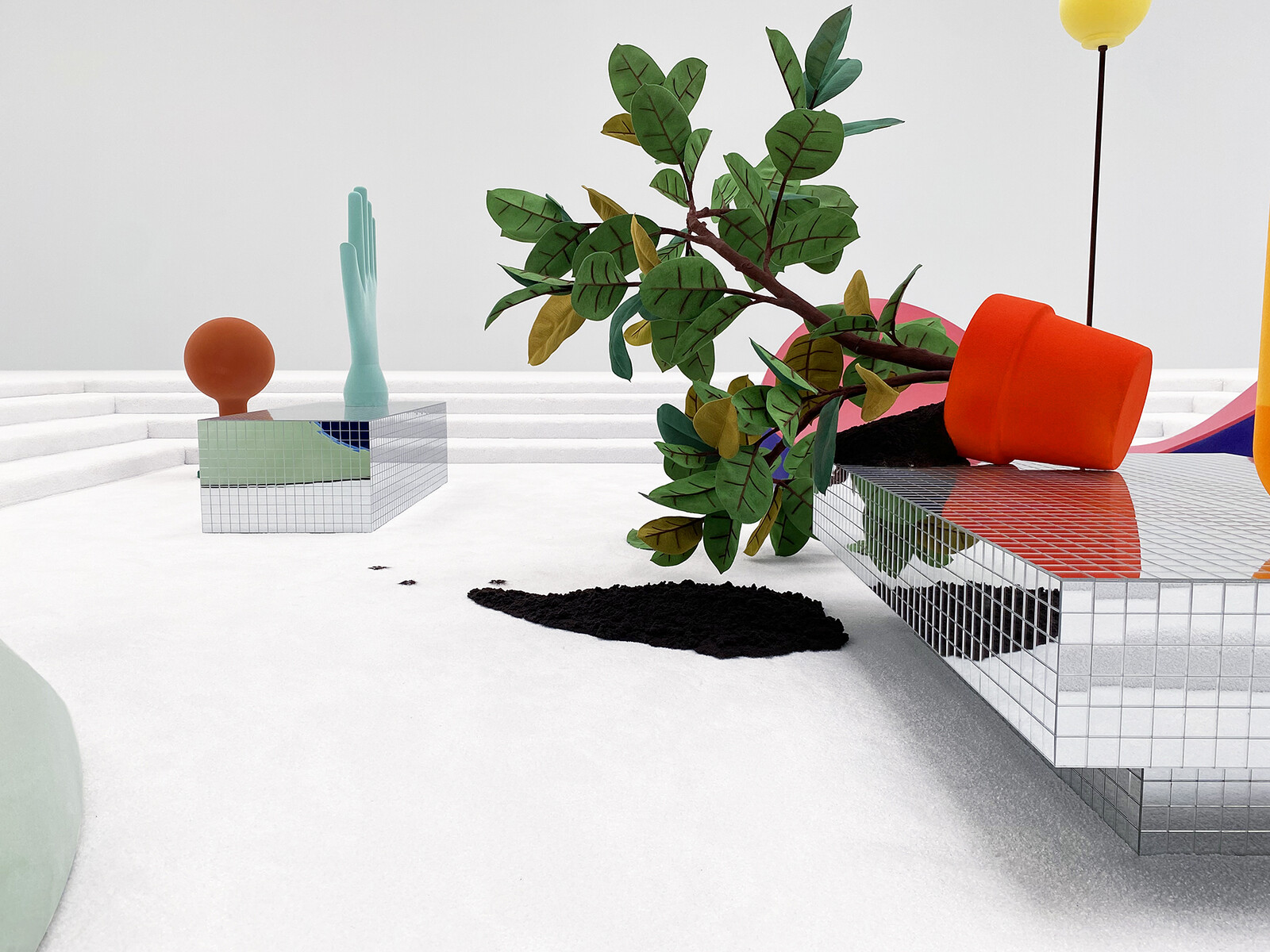To mark Log’s 20 years of observing architecture and the contemporary city, former guest editors and current editorial protagonists were invited to interview someone whose work resonates with their current thinking or concerns, or even with what keeps them up at night. The conversations they initiated range from designing with AI to AI’s possible future consciousness; from natural French wine to Indigenous Mexican textiles; from building architecture to theorizing architecture; from corruption in the building industry to untold histories. Literary critic Caroline Levine calls for activism; urbanist Milton S.F. Curry says it’s a time for manifestos; and artist Ursula Biemann brings our relationship to a changing Earth System into sharper view.
As if in Alex Da Corte’s Conversation Pit, where objects sometimes go awry, the ideas and opinions of the 55 voices in Log 59 both push against and coincide with each other. But they all testify to the changes in architecture and culture since Log was launched in September 2003. For example, back in Log 2, philosopher Chantal Thomas, in “From Proust to the Mobile Phone,” noted “the mania for communication…in the public arena; the constant concern to reach and be reachable” that the mobile phone had ushered in—four years before the introduction of the game-changing iPhone. In Log 59, philosopher Emanuele Coccia suggests that the iPhone is our new mobile home—home in our hands or our pockets, not in a place. On the other hand, place-bound domestic typologies are the focus of historian Maria Shéhérazade Giudici, architect Cristina Gamboa, and architect Pier Vittorio Aureli.
Given the rapidly changing state of the world today, what the ideas in Log 59 will look like in ten years is difficult to imagine. What is certain, however, is that architecture, as the multidimensional manifestation of cultural aspirations around the globe, will persist. To plunge into the conversation pit, reserve your copy of Log 59 today. And to gauge the changes that have transpired in architecture and the city since 2003, purchase a PDF of Log 1 (fall 2003) for the original price of ten dollars.
Log 59 includes: Savinien Caracostea & Anders Frederik Steen, “Eat the World We Want to Live In”; Thomas Daniell & Maki Onishi, “The Positive Power of Architecture”; Cynthia Davidson with K. Michael Hays, Andrew Holder & Anna Neimark, “Toward a Theory of Inscription”; Peter Eisenman & Valerio Olgiati, “Making Sense of the Non-Referential”; Dora Epstein Jones & Katharine Hayhoe, “Hope Begins in a Dark Place”; Darell Wayne Fields & Milton S.F. Curry, “This Is a Time for Manifestos”; Mark Foster Gage & David Chalmers, “Architecture, AI & the Hard Problem of Consciousness”; Todd Gannon & Caroline Levine, “Everybody Needs to Breathe Oxygen”; Elisa Iturbe & Maria Shéhérazade Giudici, “Carbon Modernity’s Domestic Typologies”; Jaffer Kolb & Lucas LaRochelle, “Something Lost, Something Found”; Sanford Kwinter & Ursula Biemann, “Sentipensar; or, How to Become Earth”; Phyllis Lambert, “Remembering Jean-Louis Cohen”; Sylvia Lavin, “Birdcalls; or, Criticism in the Environment”; Ann Lui & Juliet Sorensen, “Building Justice”; Michael Meredith & Alex Da Corte, “A Conversation Pit”; Ana Miljački & Cristina Gamboa, “Housing Makes a Community”; Anna Neimark & Andrew Atwood, “Stone on Stone”; Manuel Orazi & Emanuele Coccia, “Architecture; or, The Science of the Planet”; Florencia Pita & Carla Fernández, “Ephemerality Will Kill Us All”; Mónica Ponce de León with Amale Andraos, Sean Canty, Preston Scott Cohen, Mira Henry & Meejin Yoon, “Architecture Is the Intersection of Material and Ideas”; Bryony Roberts & S.E. Eisterer, “Expanding Embodiment”; François Roche / S/he with Emanuele Coccia, “An Archaeological Retro-future”; Anthony Vidler, “Our Drawing Room” and “Palladio’s Rialto Bridge”; Sarah M. Whiting & Pier Vittorio Aureli, “From Abstraction to the Longhouse”; Cameron Wu & Patrik Schumacher, “Form, Words, and Artificial Intelligence”.


